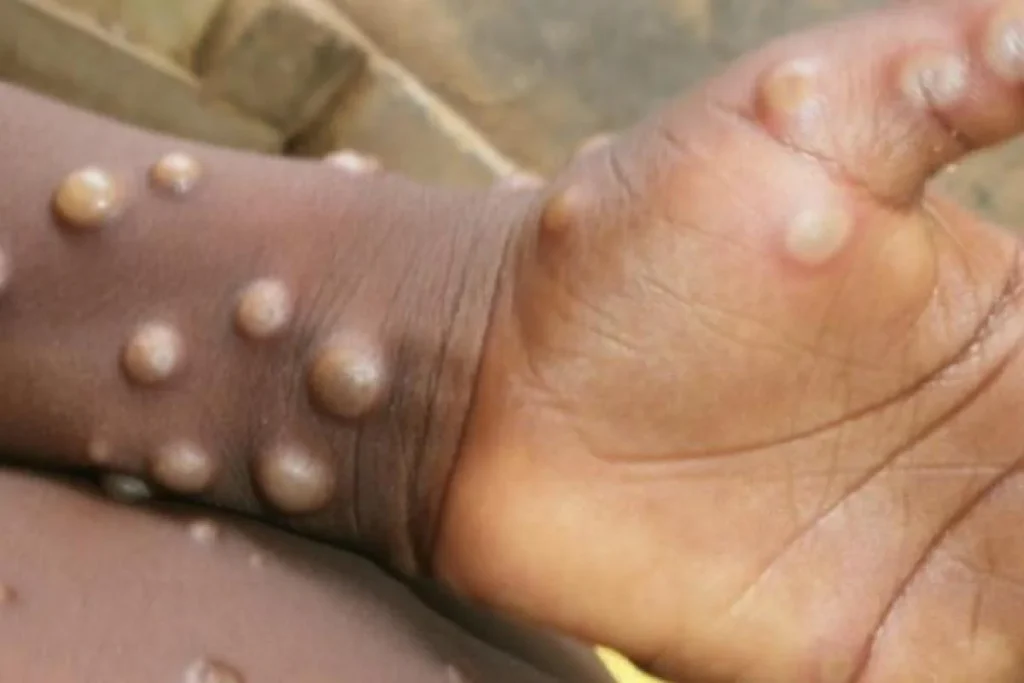
In an initiative that holds the promise of a healthier future, the Nigeria Centre for Disease Control and Prevention (NCDC) has launched a pioneering research project on monkey pox (Mpox), to address the complex challenges posed by this disease and pave the way for better healthcare.
During the launch event in Abuja on Monday, the director-general of NCDC, Dr. Ifedayo Adetifa stressed the significance of knowledge, unity and determination in tackling the challenges associated with Mpox.
Previously known as Monkeypox, Mpox represents the most important global human orthopoxvirus infection since the eradication of smallpox in 1979. Nigeria has faced annual outbreaks of Mpox since its re-emergence in 2017.
Over the years, the country has recorded 2668 suspected cases, 975 confirmed cases and 14 deaths, with Lagos and Rivers States experiencing the highest disease burden.
The project, developed in collaboration with dedicated researchers and institutions, aims to shed light on unexplored aspects of Mpox and bridge the gap between clinical and One Health studies. It represents a significant leap forward in Mpox research, underscoring the NCDC’s unwavering commitment to safeguarding the health of Nigerians and the global community.
Adetifa underscored the power of research and the strength of collaboration in the fight against infectious diseases. He emphasised that by working together, we can move closer to a world free from the threat of Mpox and ensure the well-being of future generations.
“This research project marks a major milestone in Nigeria’s efforts to address public health challenges. It testifies to the country’s dedication to leveraging scientific knowledge and partnerships to protect its citizens’ health and contribute to global health security,” he said.
As the project advances, it is expected to yield valuable insights into Mpox, ultimately paving the way for improved prevention, diagnosis, and treatment strategies.
“With the dedication of the NCDC and its partners, a brighter and healthier future free from the threat of Mpox is within reach,” Adetifa added.
The two-year research project will cover key thematic areas, including the clinical characteristics and natural history of Mpox disease, essential epidemiological parameters, and factors related to infection and transmission.
Two studies will be conducted to address these thematic areas: The clinical study will help fill gaps in the clinical understanding of the virus and the natural history of infection, while the One Health study will enhance the understanding of the dynamics of infection and transmission in the Nigerian context.
The Rivers State Commissioner for Health, Dr. Adaeze Chidinma Oreh commended the launch of the project, describing it as “a significant milestone in Nigeria’s efforts to strengthen the prevention, response and control of Mpox outbreaks”.
The research project aims to provide evidence that will enhance Mpox outbreak prevention, response, and control, and this approach is commendable.
Co-project lead and deputy director for research at the UK Public Health Rapid Support Team (UK-PHRST), Professor Gwenda Hughes expressed delight at being part of the collaboration. She emphasised the importance of understanding the clinical characteristics and patterns of infection and transmission of Mpox in Nigeria.
The UK-PHRST will support Nigerian colleagues in answering vital scientific questions through this extensive research program, while also offering training to local laboratory staff and field teams. They have already provided lab equipment and expertise to bolster local diagnostic capabilities for Mpox.
A veterinary officer and representative from the Ministry of Agriculture and Food Security, Dr. Alao Mitchell urged the government and partners to work together to achieve success in preventing and controlling Mpox.
This comprehensive approach, which involves a collaborative effort, is crucial to attaining the goal of protecting communities from Mpox.
Co-project lead from the NCDC, Dr. Chinwe Lucia Ochu emphasised the impact of Mpox outbreaks in Nigeria, particularly among key populations, underscoring the importance of surveillance and understanding transmission within the One Health space.
She pointed out that the 2022 global outbreak of Mpox, which affected over 100 countries, coincided with the country’s largest outbreak, with 762 confirmed cases and over 2000 suspected cases.
The research project represents a significant step forward in addressing the Mpox threat and advancing public health efforts in Nigeria and around the world.
In 2022, various stakeholders, including the National Veterinary Research Institute (NVRI), the Niger Delta University Teaching Hospital (NDUTH), the Pandemic Sciences Institute at the University of Oxford, among others, agreed to collaborate on a multi-disciplinary research project aimed at addressing knowledge gaps on Mpox. This initiative seeks to improve the public health response to the virus in Nigeria and beyond.

